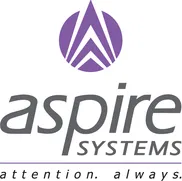Test Automation Engineer
Type of work
Full-time
Experience
Senior
Employment Type
B2B
Operating mode
Remote
Tech stack
English
B2Robot Framework
SQL
Python
Job description
Responsibilities:
- Test automation framework development: designing, implementing, and maintaining robust test automation frameworks to support efficient and scalable testing. Evaluating and selecting appropriate tools and technologies for test automation.
- Scripting: developing and executing automated test scripts using scripting languages. Implementing modular and reusable code for automated tests.
- Integration with CI/CD: Integrating automated tests into the continuous integration and continuous deployment (CI/CD) pipeline. Ensuring automated tests run seamlessly as part of the build and release process.
- Test planning: collaborating with QA engineers, developers, and product managers to plan and prioritize automated testing efforts. Defining and communicating automation scope, objectives, and strategies.
- Test case maintenance: maintaining and updating automated test scripts to reflect changes in software requirements and features. Conducting regular reviews and optimizations for improved efficiency.
- Cross-browser and cross-platform testing: ensuring that automated tests are designed to run on different browsers and platforms. Identifying and addressing compatibility issues.
- Defect tracking: logging and reporting defects identified through automated testing. Collaborating with development teams to facilitate defect resolution.
- Performance and load testing: collaborating with performance testing teams to integrate and execute performance and load tests. Identifying and addressing performance bottlenecks through automated mean.
- Creating and maintaining clear documentation for automated test scripts, frameworks, and processes.
Requirements:
- Proficiency in test automation tools and frameworks - Robot Framework is a must;
- Selenium, Cypress, Playwright, JUnit, TestNG – nice to have.
- Experience with SQL and scripting languages such as Python, or JavaScript, TypeScript
- Experience in data-related projects.
- Experience with Load & Performance Testing (e.g. Locust, k6, Gatling).
- Hands-on experience integrating automated tests into CI/CD pipelines (e.g. Jenkins, Azure DevOps, GitHub Actions).
- Strong analytical and problem-solving skills with a focus on efficiency and effectiveness.
- Effective communication skills to collaborate with cross-functional teams and convey testing results and recommendations.
- Proven experience in designing, implementing, and maintaining automated test frameworks.
- Familiarity with Agile development methodologies.
We offer:
- Stable employment. On the market since 2008, 1500+ talents currently on board in 7 global sites.
- Flexibility regarding working hours.
- Great Place to Work® certified employer.
- Comprehensive online onboarding program with a “Buddy” from day 1.
- Cooperation with top-tier engineers and experts.
- Unlimited access to the Udemy learning platform from day 1.
- Certificate training programs. Lingarians earn 500+ technology certificates yearly.
- Upskilling support. Capability development programs, Competency Centers, knowledge sharing sessions, community webinars, 110+ training opportunities yearly.
- Internal Gallup Certified Strengths Coach to support your growth.
- Grow as we grow as a company. 76% of our managers are internal promotions.
- A diverse, inclusive, and values-driven community.
- Autonomy to choose the way you work. We trust your ideas.
- Create our community together. Refer your friends to receive bonuses.
- Activities to support your well-being and health.
- Plenty of opportunities to donate to charities and support the environment.
- Modern office equipment. Purchased for you or available to borrow, depending on your location.
120 - 140 PLN/h
Net per hour - B2B
Check similar offers





